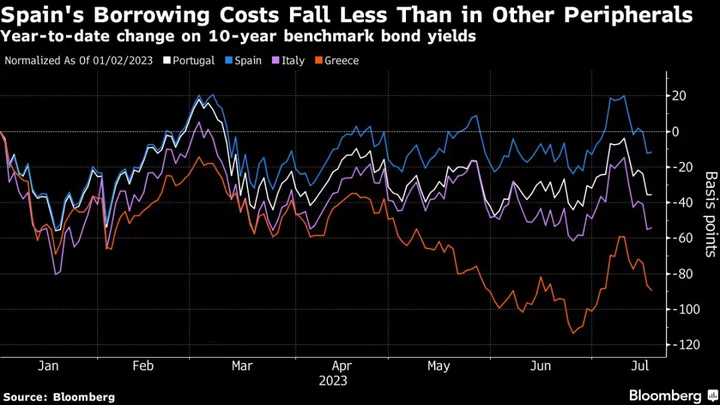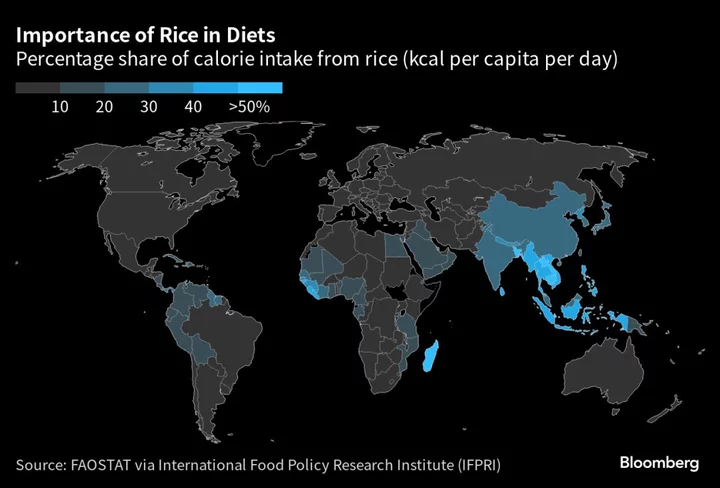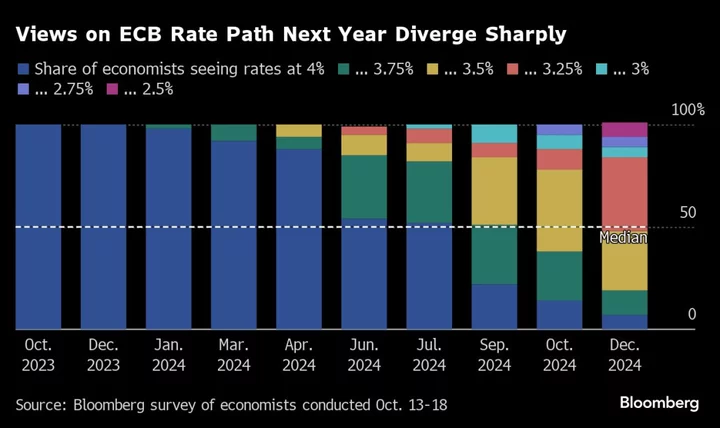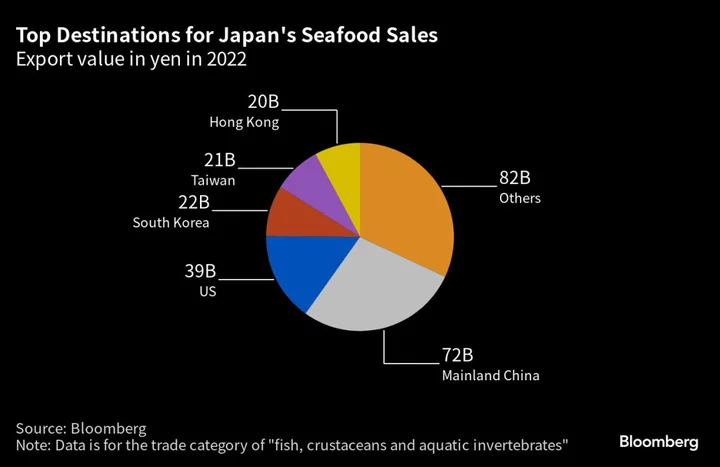As Spanish voters get ready to head to the polls, investors are putting their focus on the pro-business policies of conservative frontrunner Alberto Nunez Feijoo.
The consensus among strategists is that a win by the challenger will be a catalyst for Spain’s stock and bond markets. In particular, banks and energy companies are seen as the winners if Feijoo carries out his promise to overhaul windfall taxes that have hit the two industries.
The new administration may also extend the life of Spanish nuclear power stations, which would benefit utilities such as Endesa SA and Iberdrola SA, according to analysts at Morgan Stanley. Another issue for investors is whether Feijoo would take a softer stance on M&A activity involving Spanish companies considered strategic by the state.
“The Spanish economy looks to be on a positive trajectory” going into the elections, said Richard Halle, who manages the M&G (Lux) European Strategic Value Fund. The UK asset manager has recently bought more shares of Spanish banks.
Read More: Spain’s Sanchez Is Struggling to Make Economic Case: Six Charts
The most recent polls suggest Socialist Prime Minister Pedro Sanchez will be ousted when Spain holds elections on Sunday, and Feijoo, who leads the center-right People’s Party will take power.
Here’s a look at what investors will be watching:
Bond Market
A growing chorus of Wall Street strategists are telling clients to buy Spanish government debt, arguing the bonds will catch up with gains in its main euro-area peers once the political noise dissipates.
Morgan Stanley, Barclays Plc and Citigroup Inc. are among those highlighting the nation’s bonds are cheap after months of underperformance, saying election risks are overdone. Spain’s 10-year bond is yielding 3.45%, about a full percentage point more than the German rate.
To be sure, given Spain’s fractious political history, a clear outcome is no sure thing. Barclays warned in a note last month that investors should expect bond spreads to widen if the election result is inconclusive.
Read More: Barclays to Morgan Stanley Say Buy Spanish Bonds Before Election
Windfall Taxes on Banks
Banks, which have the heaviest weighting in Spain’s benchmark IBEX 35 Index, could benefit under a new conservative administration, according to analysts at Morgan Stanley.
Feijoo has pledged to overhaul windfall taxes on banks that were put into place by the Sanchez government as a way to raise money during the cost-of-living crisis.
While the election challenger hasn’t gone as far as saying he would repeal the levy, he’s argued that they’re badly designed. Morgan Stanley thinks a Feijoo victory could lead to the tax being reduced by 2025.
For investors, a lighter tax burden would make banks a more attractive investment. Banco Santander SA shares have soared 26% already this year, on track for the best annual performance since 2009.
Energy Regulation
If Feijoo’s center-right People’s Party wins, there may be less government intervention in the electricity market, according to Morgan Stanley.
Under Sanchez, Spain had imposed measures including a cap on prices for natural gas used to generate power in a bid to reduce power costs for households and companies. Less intervention could benefit utilities, according to the bank.
Iberdrola, the stock with the biggest weighting on Spain’s IBEX 35 index, has gained about 4% this year, compared with a 16% advance for the wider benchmark.
Takeover Shield
Since 2020, Spain has had the power to block takeovers or acquisitions of large stakes of firms such as utilities and telecommunications and defense companies that it deems to be strategic, a rule that was put in place to shield companies after equity values plummeted during the pandemic.
Feijoo has said that, while shielding those firms made sense at the time, he’s surprised the measure remains in place because protectionism isn’t compatible with European Union principles.
Author: Macarena Muñoz and Aline Oyamada









